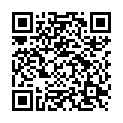|
|
|
| Module code: BAME-151 |
|
3S (3 hours per week) |
|
4 |
| Semester: 1 |
| Mandatory course: yes |
Language of instruction:
German |
Assessment:
Class presentation, oral examination, module work
[updated 30.07.2021]
|
BAME-151 Health care management, Bachelor, ASPO 01.04.2008
, semester 1, mandatory course
|
45 class hours (= 33.75 clock hours) over a 15-week period.
The total student study time is 120 hours (equivalent to 4 ECTS credits).
There are therefore 86.25 hours available for class preparation and follow-up work and exam preparation.
|
Recommended prerequisites (modules):
None.
|
Recommended as prerequisite for:
BAME-253
BAME-455
[updated 12.05.2010]
|
Module coordinator:
Prof. Dr. Martha Meyer |
Lecturer:
Prof. Dr. Martha Meyer
[updated 12.05.2010]
|
Learning outcomes:
The course will introduce students to social science perspectives and terms. After successfully completing this module, students will be familiar with sociological theories and key concepts used in conjunction with nursing and health sciences. They will be able to reflect on theories and their application in the field of nursing and health and determine the relevance to care at different levels.
[updated 30.07.2021]
|
Module content:
1. Introduction
Differentiation from natural sciences and humanities, as well as cultural sciences
2. Basic questions in sociology
How do social orders emerge?
What is social action?
What are the forms and consequences of social change?
3. Structural theories, theories of action and how they are taught
We will look at different approaches using some of the classics from the social sciences as examples:
Structural theories: Marxism; Durkheim school; structural functionalism; systems theory; structuralism.
Theories of action: Rational Choice Theory; symbolic interactionism and other interpretive approaches
4. Key concepts: Society; social action; differentiation; social structure; economics; politics; power; domination; culture; norms and values; social groups; institution; socialization; social role; inequality; aging; gender; ethnicity.
[updated 30.07.2021]
|
Teaching methods/Media:
Print and electronic media, slides
[updated 30.07.2021]
|
Recommended or required reading:
Joas, Hans (Hg.): Lehrbuch der Soziologie. Frankfurt/M. (Campus) neueste Auflage.
Kaesler, Dirk (Hg.): Klassiker der Soziologie (2 Bde.). München (Beck) 2003.
Mikl-Horke, Gertraude: Soziologie. Historischer Kontext und soziologische Theorie-Entwürfe. München (Oldenbourg) 2001.
[updated 30.07.2021]
|


